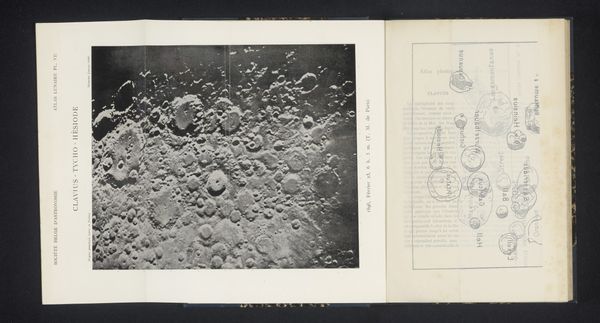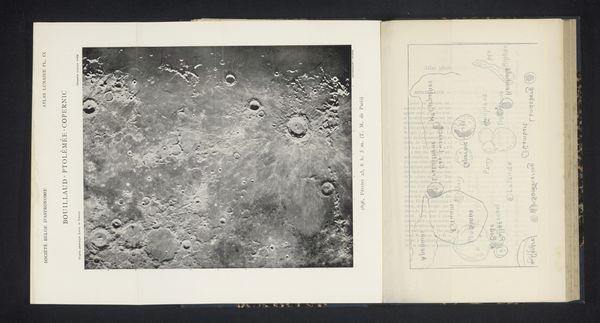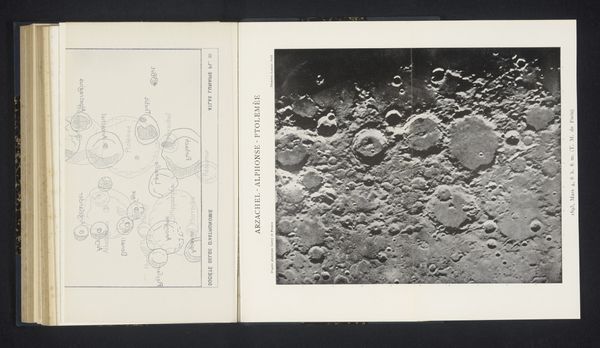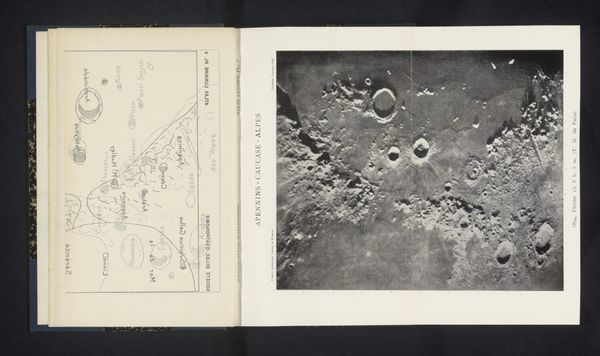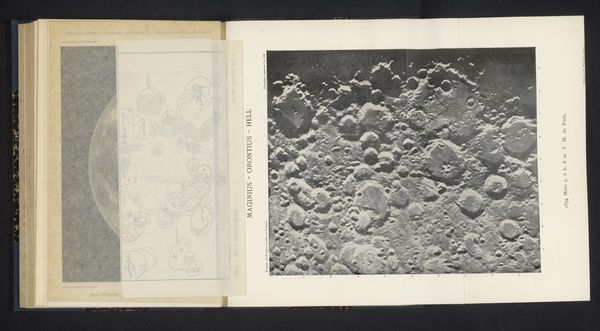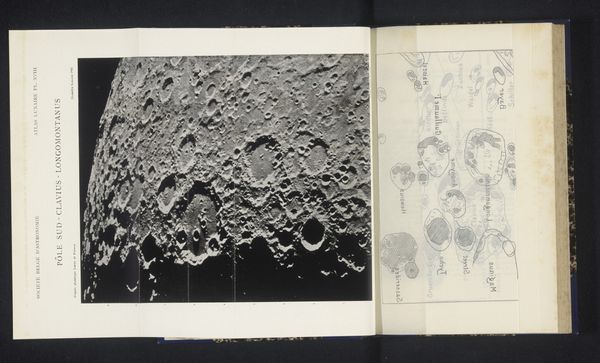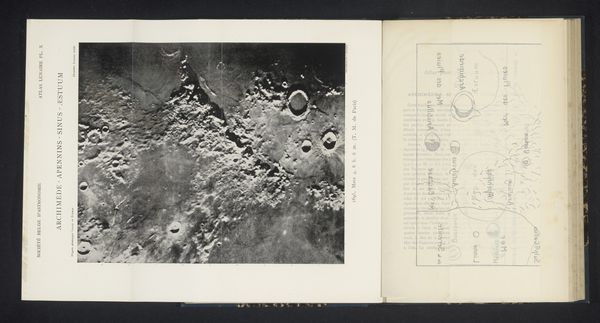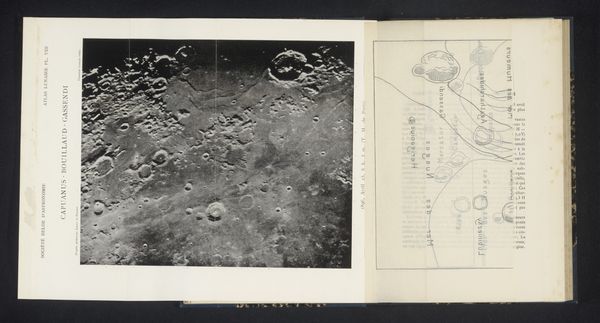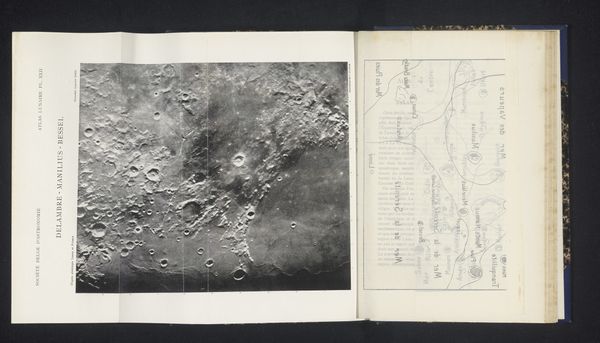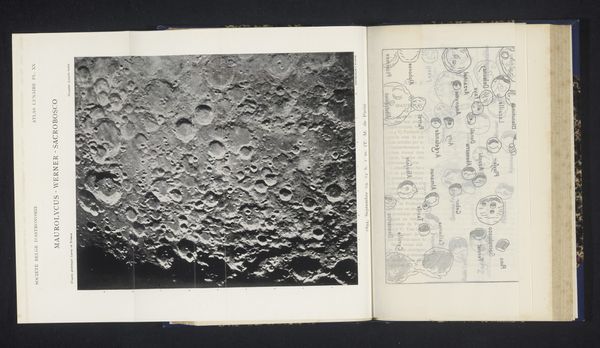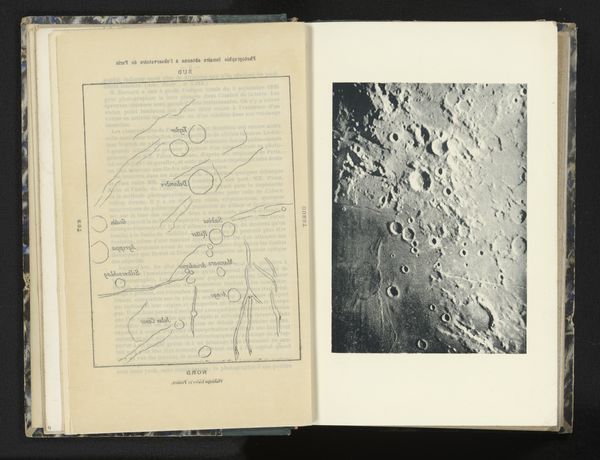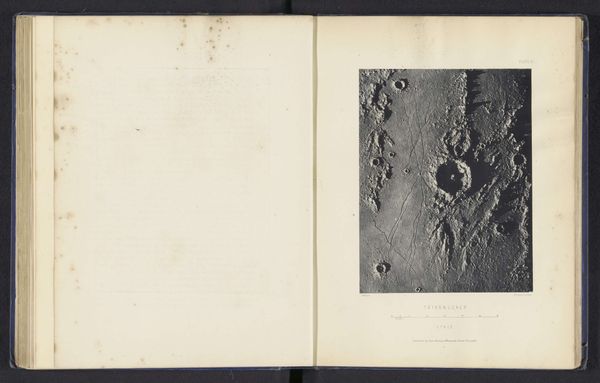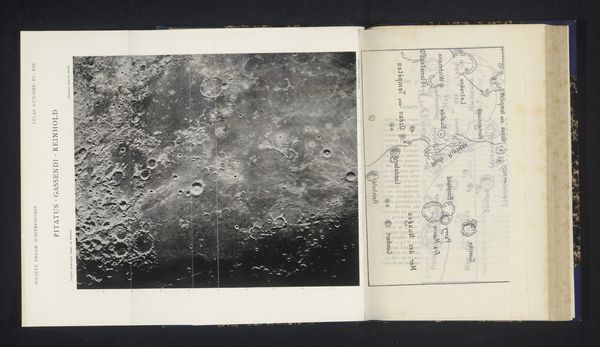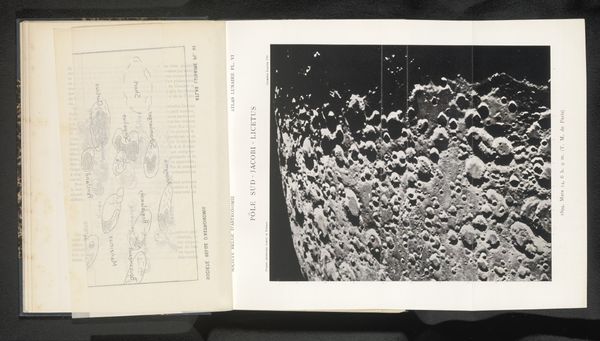
print, photography
# print
#
landscape
#
photography
#
geometric
#
academic-art
Dimensions: height 227 mm, width 190 mm
Copyright: Rijks Museum: Open Domain
Loewy and Puiseux's "Kraters op de maan" presents a stark, monochromatic vision of the lunar landscape. The composition is dominated by the textured surface of the moon, its craters rendered with striking clarity. The interplay of light and shadow creates a dynamic visual field, evoking a sense of both wonder and desolation. This image serves as a fascinating document in the history of scientific observation. The craters, meticulously captured, become signs, each a record of cosmic collisions. The adjacent page of annotated text and diagrams further emphasizes the structuralist impulse to dissect and categorize the visual world. The artwork's engagement with the moon transcends mere representation; it reflects broader philosophical concerns about humanity's relationship to the cosmos and the limits of empirical knowledge. Note how the craters function not just as scientific data, but also as a testament to the awesome, destructive power of the universe. It's a reminder that art, even in the service of science, is always open to multiple interpretations.
Comments
No comments
Be the first to comment and join the conversation on the ultimate creative platform.
